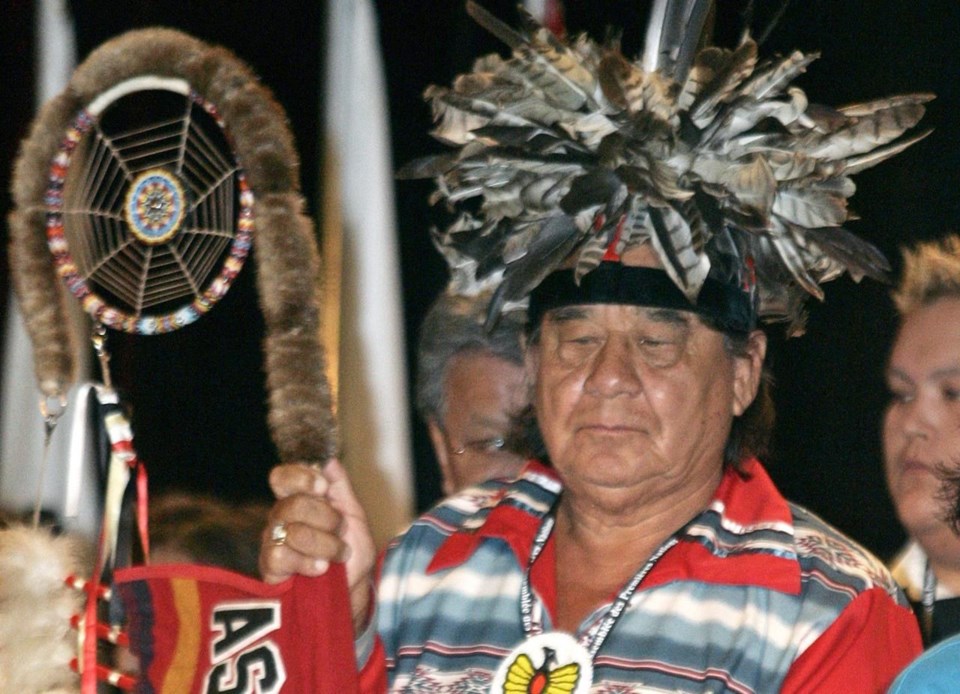MONTREAL — Billy Two Rivers, a celebrated Mohawk professional wrestler who became a prominent politician and Indigenous rights advocate, has died at 87.
The Mohawk Council of Kahnawake, south of Montreal, announced his death in a statement published Monday.
"He was both colourful and outspoken, never afraid to challenge government officials or correct Kahnawà:ke’s opponents on their misinterpretations of the community’s position or its place in history," the council said.
Two Rivers rose to fame as a wrestler in the 1950s, and spent nearly a quarter of a century in the ring before he turned to politics.
He was first elected to Kahnawake council in 1978 and served 10 consecutive terms. Two Rivers served in 1990 as the "right hand" of grand chief Joseph Tokwiro Norton during the Oka Crisis, the council said.
The Oka Crisis started July 11, 1990, when Quebec provincial police moved in on a barricade erected by Mohawks to protest the planned expansion of a golf course on what is ancestral land. A provincial police officer was killed and the situation escalated into a tense, 78-day standoff between Mohawks, Canadian soldiers and Quebec provincial police.
Russell Diabo, a Kahnawake Mohawk and Indigenous policy analyst, said that during his two decades as a politician Two Rivers was involved in many of the turning points in Canadian history, including constitutional talks throughout the 1980s, and the Oka Crisis.
Diabo said Two Rivers went to Ottawa to represent Kahnawake in political meetings during the 1990 crisis, while Norton stayed on the ground. Two Rivers advocated for Mohawk rights in different meetings with political leaders, including former Quebec premier Robert Bourassa, Diabo said.
"He wasn't intimidated," Diabo said in an interview Monday. "He was a good man."
Diabo also got to see the other side of his friend when the two of them spent a week in London for a museum exhibit opening in the late 1980s.
"All these older guys from England were coming up to him like little kids, asking for his autograph," because they remembered him wrestling at London's Royal Albert Hall years earlier, Diabo recalled. Two Rivers, he said, was always funny, outgoing and kind when approached.
"He was very good at being, I guess you could say, a good showman," Diabo said.
The council said Two Rivers stayed active in his later years, acting in several movies and television shows and remaining a prominent advocate for the Mohawk language. In 2019, he was one of 38 elders honoured for their contributions to the development of the Kahnawà:ke Language Law, the council statement said.
His IMDb credits include the TV series "Mohawk Girls" and the 2004 movie "Taking Lives."
In 2017, Two Rivers reached an agreement to settle a lawsuit against singer Van Morrison, whom Two Rivers accused of using his photo on an upcoming album cover without permission.
Assembly of First Nations National Chief RoseAnne Archibald expressed her condolences to Two Rivers' family on Twitter, and praised his "articulate and powerful" speeches at national chiefs meetings.
Former justice minister and attorney general Jody Wilson-Raybould was among the many Canadians who expressed their condolences on Twitter.
This report by The Canadian Press was first published Feb. 13, 2023.
Morgan Lowrie, The Canadian Press



